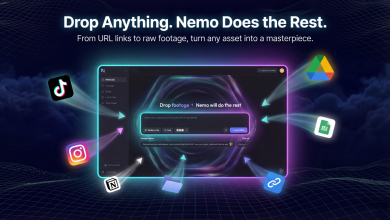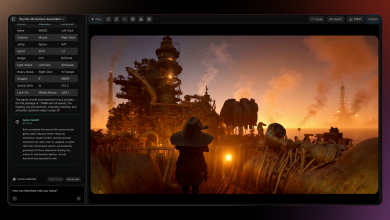
Once buried in paperwork, HR now sits at the heart of rapid workplace change, juggling strategic, highly complex processes and regulations. But according to recent research, almost half of HR leaders experience anxiety at least once a week, and 20% reported feeling anxious at work every day.
What’s driving this strain? One word, overload. Further research states that just under half of HR leaders said that heavy workload was the primary source of their stress, and yet the demands continue to rise. The volume and complexity of work now expected of HR professionals is enough to test any human capability.
The seismic shift looming over it all is the implementation of AI in HR. A staggering 80% of HR leaders believe that their role will be drastically impacted by AI in the coming years, and 77% expect it to revolutionise ways of working within their business.
The pressure is on, and change is imminent. But is AI the answer to solving HR leaders’ woes, or will it add a whole new layer of complexity for them to manage?
How the industry is changing
We are already seeing AI taking over some of the most time consuming, repetitive processes and doing them with a level of speed, accuracy, and fairness that’s hard match. In recruiting, for example, AI powered- platforms like HiredScore (acquired by Workday) are able to review resumes in seconds, flagging top candidates and then help companies make faster, better hiring decisions. In compensation planning, AI tools, when used carefully, have huge value in enabling more consistent, data- backed- outcomes. Even as early as the first interaction between employees and HR is shifting, with AI tools handling early interactions in the onboarding phase.
However, the real power of AI in HR, lies in the analytics it can provide. By analysing workforce trends, identifying skill gaps and forecasting talent needs, AI is giving HR leaders a new seat at the table, with brand new insights that can significantly impact the decisions they make on an individual level and company wide. AI-driven analytics can be used to analyse workforce trends, identify skill gaps, and forecast future HR needs to allow for strategic planning and optimisation of talent allocation and development. As a result, more and more executives are asking: “How can we use AI to better drive business decisions?” and “What’s the ROI if we implement this?” This shift from reactive admin to proactive strategy is reshaping the HR function all together.
AI requires careful review
Despite the industry-wide excitement to transform outdated systems, speed of implementation should not come at the expense of trust. AI in HR needs to be rolled out responsibly, with transparency around data sources and active measures to understand the technology, how to use it responsibly and reduce bias.
It requires careful review and a strong understanding of the data and information model it’s built on, as well as considerations around data privacy and algorithmic bias. Without this, organisations risk undermining employee confidence and making poor decisions. After all, lack of education leads to higher risk.
The future of AI in HR is being able to successfully balance the efficiency of AI with the insight, empathy and leadership that can only truly be achieved through human input. HR professionals will play a critical role in ensuring that AI systems are used responsibly and ethically, mitigating bias, and maintaining transparency.
The future of HR
As with every industry, AI is re-writing job descriptions. But, when one door closes, another opens, and new roles will emerge within HR, such as talent intelligence analysts and manager enablement specialists. These roles will report to the C-Suite with findings driven by data insights and analytics, further cementing HR’s seat at the top table of decision-making.
For employees, AI-powered tools like chatbots and virtual assistants will provide instant and personalised support, streamlining processes, answering questions, and tailoring learning and development opportunities. Meanwhile, AI will enable HR professionals to focus on work that needs more human qualities: empathy, critical thinking and cultural leadership. We may see new roles like talent intelligence analysts and manager enablement specialists may emerge and require deep data literacy.
Automation of routine tasks will change the day-to-day, along with more emphasis on data-driven decision making. As routine tasks are automated, HR roles will evolve to require more strategic thinking, data literacy, and the ability to effectively leverage AI tools. There is, therefore, a need for HR professionals to develop skills like data mastery and strategic advisory expertise.
The evolution of AI will act as a powerful assistant to HR teams, enabling them to work more efficiently and strategically. The future of HR is about the collaboration between humans and AI, where AI handles the data-intensive and repetitive tasks, and HR professionals leverage their uniquely human capabilities—empathy, critical thinking, judgment, and emotional intelligence—to build a more engaged, productive, and future-ready workforce.




